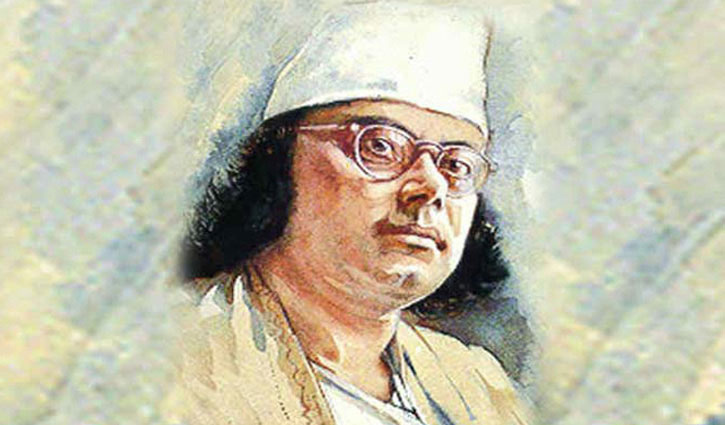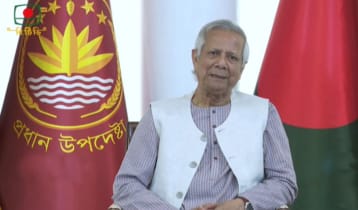Poet Nazrul Islam’s 121st birth anniv today
|| risingbd.com

The 121st birth anniversary of National Poet Kazi Nazrul Islam is being observed today (Monday) in a limited scale in the awake of the coronavirus pandemic.
Kazi Nazrul was born on the 11th Joishtha in Bengali calendar year 1306 in Churulia, near Asansol in the Burdwan district of West Bengal.
He was famous for his fiery poem Bidrohi (The Rebel) and his many melodious songs. He was a poet, lyricist, musician, revolutionary and philosopher.
The nation got inspirations from Nazrul’s poems and songs during the great Liberation War and all democratic movements and struggles.
There are 2,400 of his songs, and together, they are known as Nazrul-Geeti or Nazrul Sangeet. He composed the songs, which he liked to tune himself.
Considering his impressive talent, Rabindranath Tagore dubbed him as Saraswati’s bor-putra (the gifted son of the Goddess of learning).
Nazrul was the poet of rebellion against injustice and taboos. His nickname was Dhukhu Miah (Mr. Sorrow). True to his name, Nazrul suffered a lot in his life.
His father died in 1910 while he was still at school and he became the breadwinner of the family working for a bakery company, Wahid’s, the most well known in north Bengal at that time.
Later, he resumed studies at Darirampur, Trishal, Mymensingh. But he left his studies to join the British Indian Army as a non-commissioned officer and was posted to Karachi. He left the army and settled in Kolkata, where he started publishing a fortnightly, Dhumketu (The Comet).
The magazine had a fiery tone and was critical of the British rule in India. He soon found himself in prison for publishing a poem written by him, “Anandomoir Agomone” (Advent of Goddess Durga-the Goddess of destruction of all evil).
In prison, he did not stop writing. He wrote, “Rajbandir Jabanbandi” (Deposition of a political prisoner).
After a prolonged hunger strike, Nazrul was released from the prison. But throughout the 1920s, he found most of his work banned. After the death of his second son- Kazi Bulbul- the poet was sad. He wrote, “My nightingale sleeps forever.”
Dhaka/Mukul
risingbd.com


















